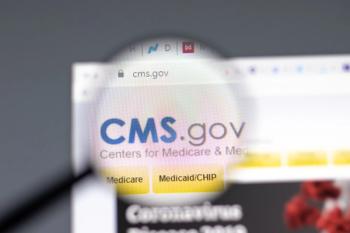
Medication Adherence Can Be a Good Measure of Health Plan Quality, AJMC Study Finds
The link between getting patients to take medication correctly and keeping down healthcare costs is strong enough that adherence is being tied to reimbursement for healthcare providers. A study published recently in The American Journal of Managed Care examines connections at the health plan level between good plan-level adherence, lower rates of disease complications, and lower medical spending.
FOR IMMEDIATE RELEASEJULY 16, 2015
PLAINSBORO, N.J.—Health plans whose patients with diabetes and congestive heart failure (CHF) took medication regularly had lower rates of complications from those diseases, which suggests that measuring medication adherence might be a way to rate plan performance, according to a study just published by The American Journal of Managed Care. The full study can be found
The study, led by Seth A Seabury, PhD, associate professor of Research Emergency Medicine, Keck School of Medicine and a fellow of the USC Schaeffer Center for Health Policy & Economics, analyzed medical and pharmacy claims from a database of large private employers for the period 2000 to 2009. The data included care received in both inpatient and outpatients settings and featured pharmacy claims and drug identifiers, including the number of days of medication supplied. Researchers identified patients who were prescribed drugs for diabetes or CHF and who took their medication at least 80 percent of the time, a standard for good adherence from the National Quality Forum recognized by the Centers for Medicare and Medicaid Services (CMS) and many other payers.
Then, researchers compared those findings against patient outcomes, using quality measures for preventable conditions and episodes in both diabetes and CHF; these included inpatient admissions and rates of both short-term and long-term complications.
Adherence varied across the plans. Of note, the data showed patients with these chronic conditions are taking medication only about half the time: rates for common therapies in diabetes ranged from 45.2 percent for statins to 56 percent for oral antidiabetes medications; in CHF, patients took diuretics only 37 percent of the time and, and adherence for ACE inhibitors and ARBs was 51.2 percent.
Plans with low rates of adherence to diabetes medications had adjusted rates of uncontrolled diabetes admissions of 13.2 per 1,000 patients, compared with 11.2 per 1,000 in plans with moderate adherence and 8.3 per 1,000 in plans with high adherence. Adjusted rates of CHF-related admissions were 15.3 percent in low adherence plans, 12.4 percent in moderate adherence plans, and 12.2 percent in high adherence plans.
The effect translated into savings for plans whose patients with chronic conditions have better levels of adherence, the study found: Diabetes patients in plans with low levels of adherence accounted for $8,784 in annual medical spending on average; those in plans with moderate adherence had an average of $8,236, and those in plans with high adherence had an average of $6,766. The effect was even greater for CHF patients: those in plans with low, moderate and high levels of adherence accounted for annual medical spending levels of $31,500, $23,519, and $20,408, respectively.
The authors do not address why some plans have better adherence than others, and they note that their findings only associate adherence with better health outcomes; they do not find a cause and effect. Still, they write, “The constellation of activities that high-adherence plans undertake to improve quality seems to produce gains in health outcomes for patients.”
About the Journals
The American Journal of Managed Care celebrates its 20th year in 2015 as the leading peer-reviewed journal dedicated to issues in managed care. Other titles in the franchise include The American Journal of Pharmacy Benefits, which provides pharmacy and formulary decision-makers with information to improve the efficiency and health outcomes in managing pharmaceutical care, and The American Journal of Accountable Care, which publishes research and commentary on new healthcare delivery models facilitated by the 2010 Affordable Care Act. AJMC’s news publications, the Evidence-Based series, bring together stakeholder views from payers, providers, policymakers and pharmaceutical leaders in oncology and diabetes management. To order reprints of articles appearing in AJMC publications, please call (609) 716-7777, x 131.
CONTACT: Nicole Beagin (609) 716-7777 x 131
Newsletter
Stay ahead of policy, cost, and value—subscribe to AJMC for expert insights at the intersection of clinical care and health economics.









